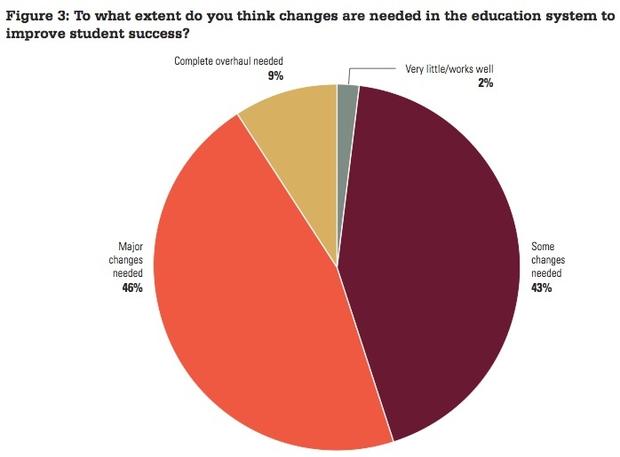What's the matter with high school counselors?
COMMENTARY One of the hardest parts of the college admission process for teenagers and their parents is getting face time with a high school counselor.
It's no secret that counselors must routinely juggle heavy caseloads. In fact, counselors work with the recommended case load of 250 students per counselor in just five states -- New Hampshire, Vermont, Wyoming, Mississippi and Louisiana. That typically high counselor/student ratio, however, is only part of the problem families looking for college answers face.
That's one of the conclusions that you can easily draw from a first-ever survey of more than 5,300 high school and middle school counselors, which revealed discontent and disillusionment within the profession.
The new national survey, which was released by the College Board, detected a huge divide between educational goals and what is actually occurring in the schools. For instance, 85 percent of surveyed counselors agreed that schools should work to ensure that all students complete high school and are ready to succeed in college and careers, but only 30 percent said that this was the mission of their own schools.
Among those surveyed, 55 percent believe schools require either a complete overhaul or major changes to improve student success. You can see the breakdown of opinion in the pie chart below:
Despite the counselors' view that change is needed, curiously few of them believe it would be fair to evaluate counselors on outcomes such as the percentage of students who apply for college (18 percent), complete financial aid applications (13 percent) or graduate from high school (19 percent).
Inadequate Counselor Training
Although 73 percent of counselors have master's degrees and 58 percent of them are teachers or administrators, only 16 percent feel they were adequately trained for their jobs. Furthermore, 28 percent believe their training did not properly prepare them for their jobs.
Frankly, I think relevant counselor education is a key to improving the caliber of counseling in our high schools. As I've mentioned in previous posts, most counselors receive their counseling credentials in master's degree programs, but this training is laughably ineffective. The master's programs rarely include even a single course on college planning. See some of my previous posts on this issue:
-- Why high school counselors are failing
-- High school counselors: the weakest link
-- College search? Don't count on guidance counselors
Reform high school counseling
Counselors have been largely left out of the education reform agenda, which is a shame. Reform is desperately needed among the ranks of high school counselors. Until they receive adequate training, they will remain of minimal help to families desperate for meaningful information about choosing colleges and making them more affordable.
